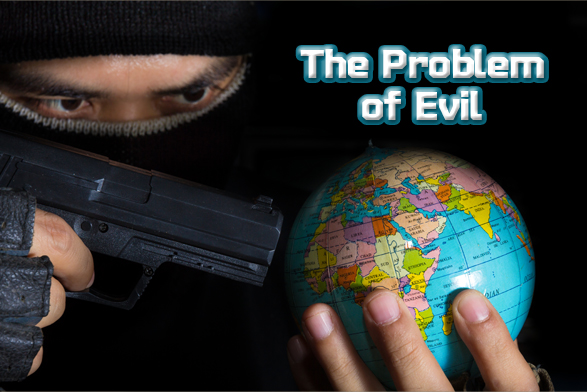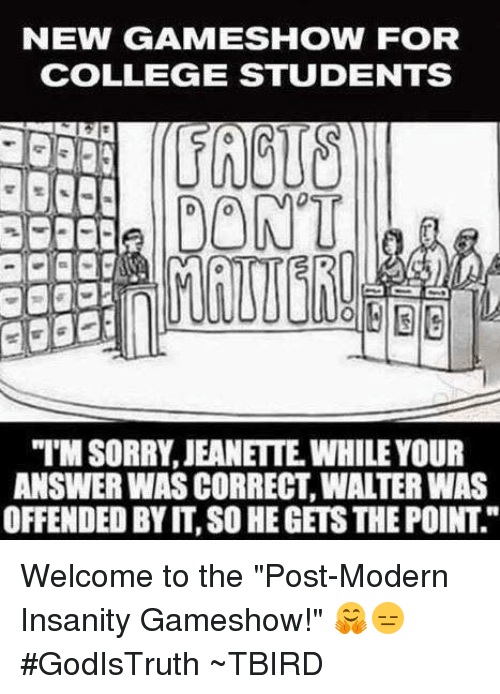Finding Truth: Identify the Idol’s Reductionism
Principle #2: Identify the idol’s reductionism
Romans 1:23 says they “exchanged the glory of the immortal God for images resembling mortal men & birds & animals & creeping things”. When you “exchange” the Creator for something in creation, you exchange His high view of man-made in God’s image for a lower view of man-made in the lower image of that thing in creation. This is called reductionism. When you reduce people to something less than fully human, you run the risk of treating them as less than human. When you define God as a thing, you tend to treat humans as things also. This is one reason why atheistic regimes can be so brutal. In the last century, atheistic leaders have killed more people than in any other century before it.
Whatever your idol is, how you treat people may reflect that. If your idol is your profession, you will tend to look on relationships as to how they will advance your career rather than getting to know them for who God created them to be. An idol always leads to a relationship attitude that dehumanizes people and justifies using them for your own agenda. And when we dehumanize people, we will eventually mistreat, abuse & exploit them.
Why can’t people see this? Paul says it’s because they “suppress the truth” (Romans 1:18). Reductionism denies one or more dimensions of human nature. It tries to stuff all of reality into a box made for just one part of it. Invariably, one part of it will stick of the box. Whatever sticks out will be dismissed, devalued, discarded or denied. They eliminate those parts of reality that don’t fit their worldview.
With materialism (everything is made up of just matter/energy), the things that stick out of the box are soul, spirit, mind, morality, consciousness, God, etc. So they try to dismiss or explain away these things. That’s why a materialist will say there is no morality, it’s just chemical reactions in our brains that make us think up morals. So they wind up denying that morality (at least your morality) exists. Picture a two story house. In the lower story are “objective scientific facts”. In the upper story is everything else that won’t fit into the lower story. Things like moral, our minds, consciousness, God, etc. Materialists want to live in the lower story. Our consciousness won’t fit into the lower story. So it either has to be tossed into the upper story where it can be dismissed or denied or they can explain it away by saying it’s nothing more than chemical reactions in our brains, making it an “illusion”, something that’s not real. So what is the idol in materialism? Its matter/energy.
Cambridge psychologist Nicholas Humphrey says consciousness doesn’t exist, that it’s just an illusion. But then how is Humphrey conscious of this fact? And why should we trust thinking scientists telling us that thinking is an illusion, that it doesn’t really exist? This line of reasoning is self-defeating. It’s like the statement, “I can absolutely state that there are no absolutes.”
Francis Crick, one of two scientists who cracked the DNA code, says that our memories, our joys, our sorrows, our free will, etc. are nothing more than a pack of neurons in our brain interacting with each other. Harvard psychologist Daniel Wegner says that our free will is an illusion fobbed on us by the chemical reactions in our brain. His book is titled, “The Illusion of Conscious Will”. Harvard neuroscientist professor Steven Pinker answers the question “Why are we conscious?” by saying “We’re not”…that our consciousness is an illusion due to chemical reactions in our brains. He says that natural selection has programmed this illusion into our genes, without explaining how this happens. But he’s using his conscious mind to think this. Why should we believe his thought process if it’s an illusion?
Remember, if you reduce people to a computer (reacting only according to physical laws), you will eventually treat them like computers. You will judge them by how well they perform their assigned functions. And when they stop functioning at a level that you determine, you will throw them out like you do an old computer. In a university, this type of thinking is most likely to be found in the science department.
But if you walk across the campus, you’ll find the arts and humanities buildings populated by people who believe in post-modernism (PM). PM posits the opposite of materialism in that it says everyone’s ideas are merely social constructs stitched together by disparate communities based on race, class, gender, sexual identity, ethnicity, etc. So every community has its own view of truth which shouldn’t be judged by anyone outside the community. Richard Rorty says that, “There is no absolute truth, rather truth is relative to the community in which we participate.” What is the idol here? It deifies the community. The problem is that reality has become a bunch of disparate and changing interpretations, a shifting loosely-held coalition of points of view in continual debate with each other, according to Don Cupitt, a PM writer.
While there are some good points to PM, it reduces people to puppets of social forces. It dissolves individuals into groups, reducing them to products of social forces. It also leaves no room for social reformers like Mother Teresa or Martin Luther King, Jr., unless you put them into specialized groups and change their message. While they say that truth is relative to the “class” of people you belong to, if you disagree with their view of truth, (even if you’re in that particular class of people), you’ll be wrong. They believe that they speak for the group, even if the majority in that group disagrees with them. So PM people can be very intolerant. And while they talk about freedom, they don’t practice it. While they don’t want you to force your views on them, they’re more than willing to force their views on you, all in the name of freedom. The same reasoning that PM people use to debunk traditional concepts of truth applies to their own views. PM is a self-refuting idea. It reduces people to be no more important than the group they belong to.
The bible describes as human institutions, “the work of human hands” (Psalms 115:4, 135:15). Their “craftsmen are only human” (Isaiah 44:11). They “bow down to the work of their hands, to what their own fingers have made” (Isaiah 2:8). But Christianity says the finite cannot be infinite. The only way to know eternal truth is if God has revealed it to us. And Christianity makes this startling claim. It comes to us thru the bible. God has revealed His views on things thru the historical evidences of the bible. Of course, our comprehension of that truth is filtered thru our fallible, fallen human minds influenced by our culture and circumstances. But at least we have our views on God’s revelations, which is far superior to making up our own fallen, filtered views.
For a comparison of what secular worldviews produce, we need look no further than the 20th century. The rise of secularism did not lead to liberty but to a bloodbath of death and destruction. Some historians have wondered how such barbarous acts could have come from civilized Europe. The answer lies in the power of idols. Nazi doctrine was built around the doctrine of race. Communist doctrine was built around the idol of economic class. In every idol-based worldview, some part of creation won’t fit into its box. In the political realm, that part is people, who then will be suppressed or killed. Under Nazism, this was the Jews, the Gypsies, blacks, etc. Under Communism, it was the capitalists, kulaks and others. Idol-based worldviews are always dehumanizing. If unchecked, they always lead to repression, war, violence and loss of freedom. In the 20th century alone, they have cost more lives than all the religious wars in all the previous centuries put together. People will be “enslaved to those that by nature are not gods” (Galatians 4:8).
Religions and worldviews that deny the God of the bible must treat something else as the ultimate reality (Principle#1). They make some aspect of creation as the ultimate explainer of reality. They then reduce everything to that single category (Principle#2). Whatever doesn’t fit into that box is either denied or suppressed. That’s why we say a worldview’s concept of humanity can’t be higher that it’s view of God.
For His Kingdom,
Dave Maynard
http://BSSSB-LLC.com








